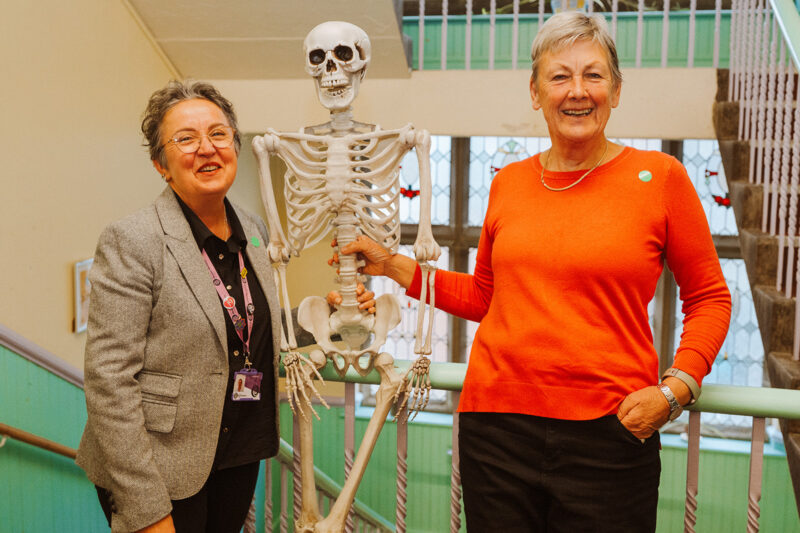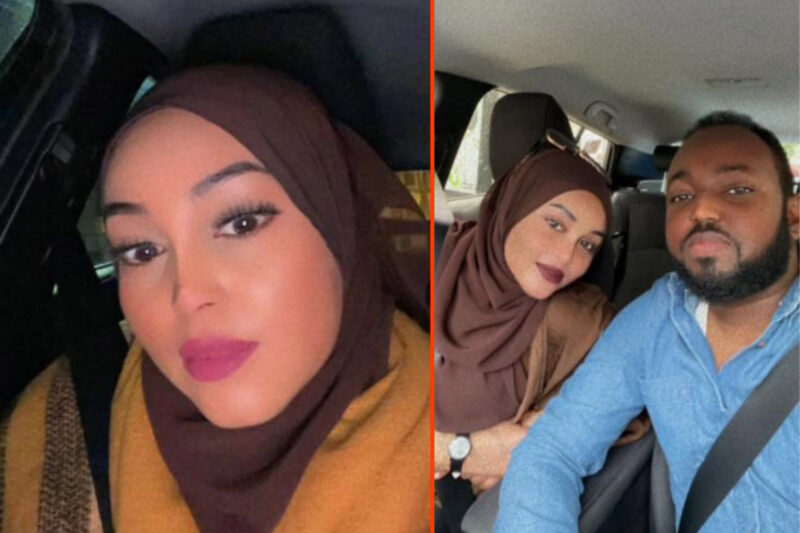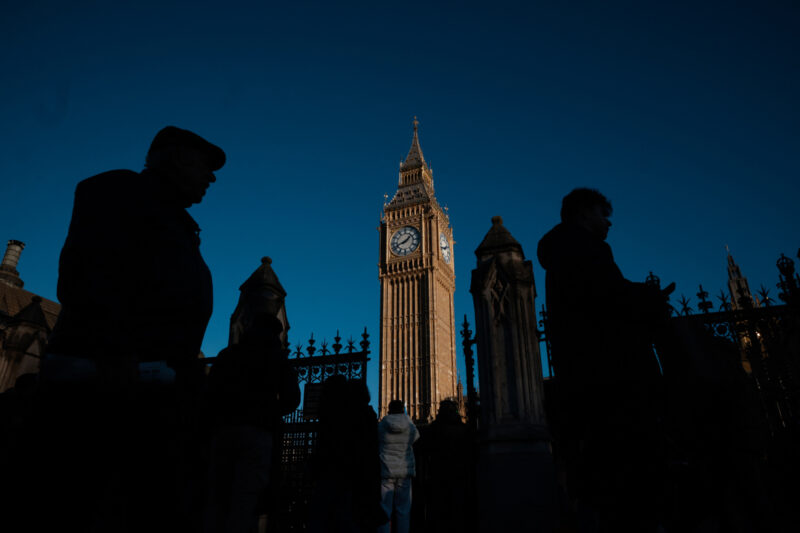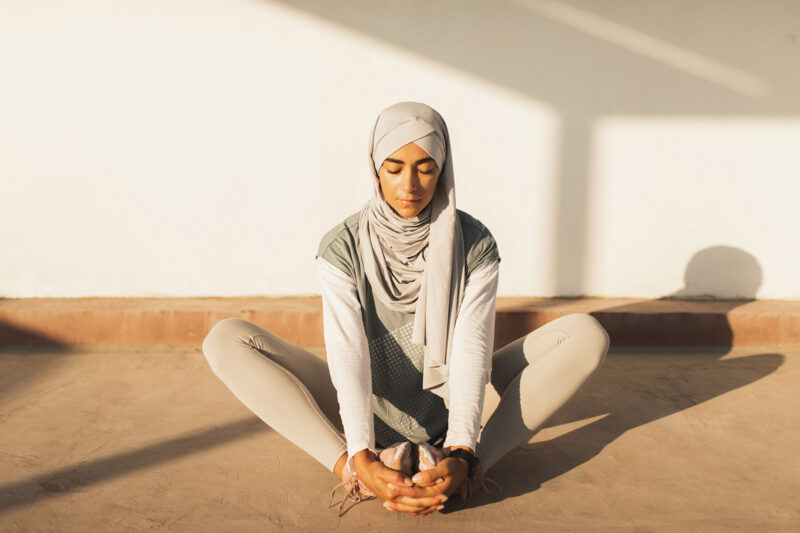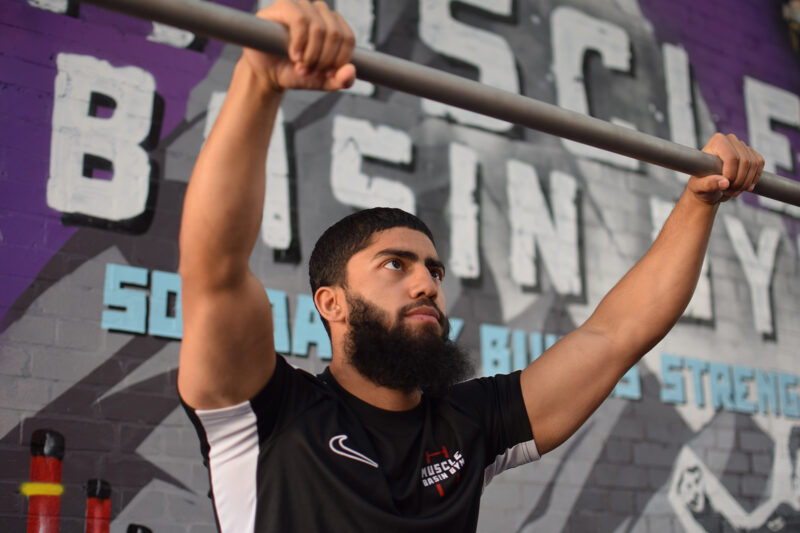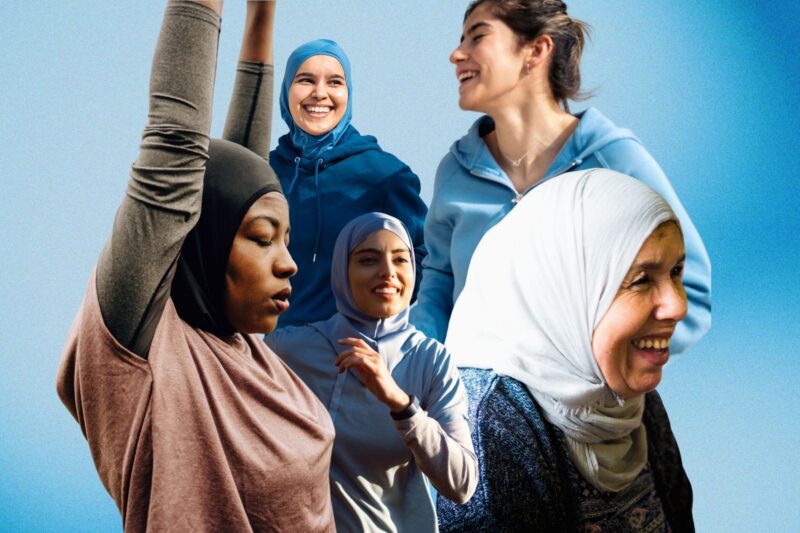Strength in sisterhood: the Muslim-owned gyms making workouts more inclusive
From Batley to Cardiff, women-only health clubs are changing the face of gym culture

Walking into Health Club for Her, a gym and spa in the West Yorkshire town of Batley, I feel a familiar rush of warmth, akin to when I step inside a mosque. Rihanna may be playing through the loudspeakers in a room filled with squat racks, barbells and treadmills, but everywhere you look there are Muslim women training together.
“We prioritise inclusivity and respect, and I think that really resonates with the Muslim women in our community,” says communications manager Rikki Hussain.
Gyms have traditionally been male-dominated spaces, but in recent years the UK has seen a rise of fitness venues created exclusively for women. That change has, in part, been driven by efforts to create safety from harassment and sexism, and a wider recognition of the benefits of strength training for women.
While gyms accommodating the faith requirements of Muslim women were once limited, now centres such as Health Club for Her, WOH Gym in Newport, south Wales, and Swann Fitness in Oldham, Greater Manchester, are helping change the culture.
“We focus on creating an environment where everyone feels comfortable and welcome. For many, having a women-only space allows them to exercise with confidence and without feeling judged,” says Hussain. “We also understand the cultural and religious needs of our members, which is why we’ve made the gym ladies-only, so that women feel safe and confident to train without worrying about how they are dressed.”
Health Club for Her opened in 2016 after owners Wajjad and Waqas Hussain saw a gap in the market to serve Batley’s Muslim population. “A lot of women would rather not go to the gym than train in a mixed space and this is something the owners wanted to change,” Hussain says.
“They’ve got a prayer room and they automatically freeze your membership during Ramadan,” says Ishrat Mehmood, a local teacher who joined in 2017. “The timings of classes change in Ramadan, so all these things are taken into account. It’s definitely more accommodating to Muslim women.”
This reframing of gym culture has been supported by the emergence of modest activewear brands such as Haya and Lyra. Now even mainstream brands such as Gymshark, Nike and Adidas are offering modest options. “In the past my alternative was an oversized hoodie, which when you’re running and you overheat, is just not practical,” says Mehmood.
Aishah Siddique has been working as a personal trainer in Cardiff for the last seven years. She works solely with Muslim women to meet the need for more instructors like them, after her own uncomfortable experiences in commercial mixed gyms. Siddique believes opening more women-only facilities will help combat a toxicity in many gyms that can manifest as harassment and discrimination.
“As a hijabi, I just didn’t feel comfortable being in an environment surrounded by topless men. The biggest thing is modesty. We don’t want anyone to see the shape of our bodies and we want our own space to feel safe,” Siddique explains.
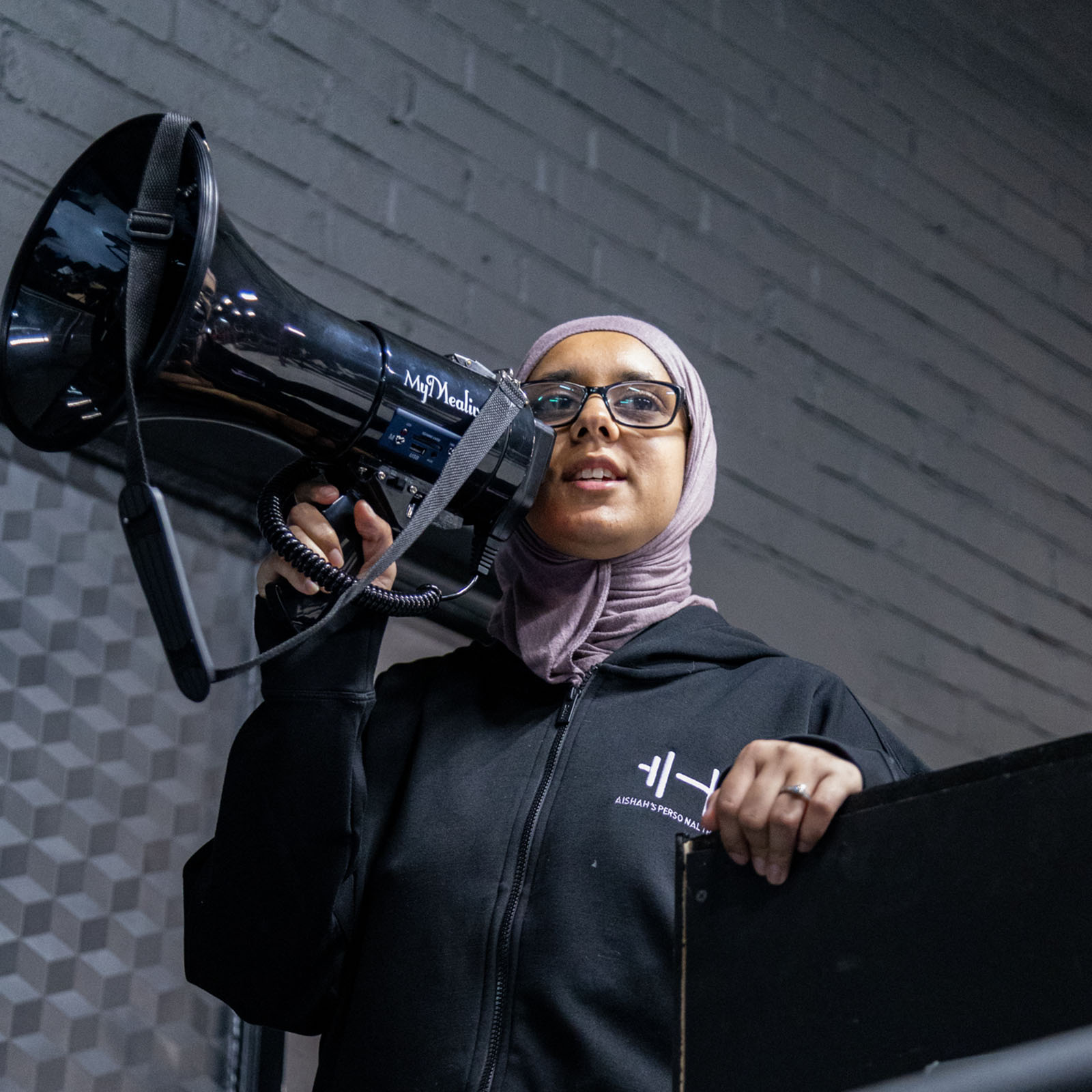
“When I worked at a women-only gym I discovered it is not only Muslim women who see it like that. A lot of non-Muslim English women were coming to the women-only gym and they always say the same thing: ‘We are just sick of being looked at!’ They’re fed up.”
Siddique remembers a time when she was one of only a handful of female Muslim personal trainers in the entire country. “Ten years ago, I definitely felt like I was the only Muslim Pakistani woman that was doing what I’m doing — bodybuilding,” she says. “And now there are so many organisations and communities, such as Alfa Active, where they have female Muslim personal trainers and coaches and are into strength training.”
She puts the emergence of this Muslim workout sisterhood down to a generational shift in attitudes towards health and fitness. “We feel more accepted. And I think we’re more confident in our identities as well, so we’re just more confident going to places like the gym.”
That shift has taken place alongside a wider awareness of health inequalities affecting minoritised communities. Heart disease is particularly acute among Muslims in Britain, while the prevalence of heart disease in the South Asian community is higher than the general population.
“There’s a lot of emphasis on health, because a lot of our parents have got diabetes or a heart condition,” explains Siddique. “We’re learning more about dieting and fitness and we’re still able to eat an Asian diet but cook our dishes in a healthier way, learn about portion control and understand protein versus carbs.”
Women who strength train two to three times a week are more likely to live longer and have a lower risk of death from heart disease, compared to women who don’t, according to a 2024 study in The Journal of the American College of Cardiology.
At Health Club for Her, so many of its Muslim members asked for more strength training equipment that last year the gym refurbished an additional floor solely for weights and resistance machines.
“When we first opened, the gym was more focused on general fitness, but over time, we’ve seen a significant increase in female Muslim members as well as non-Muslim members in strength training,” Hussain says.
That sense of enthusiasm has grown thanks to the supportive community that surrounds the gym, she says. “There’s a strong sense of camaraderie. It’s about lifting each other up, whether that’s physically in the gym or emotionally.”
 Newsletter
Newsletter


